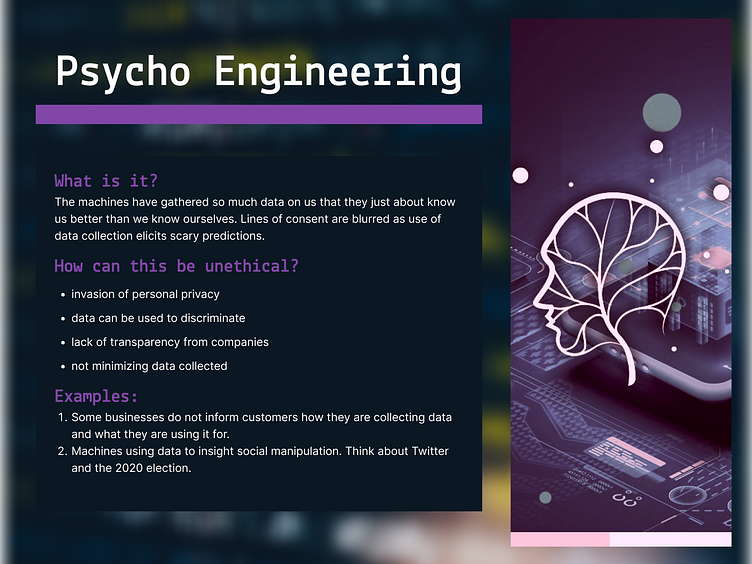Digital Ethical Fallacy: Machine
Psycho-engineering refers to the manipulation of users' psychological states through design. This often involves the use of data to predict and influence behavior, sometimes blurring the lines of consent. Examples include the invasion of personal privacy or using data to discriminate. Companies might use extensive data collection to gain insights into users' behaviors, leading to manipulative practices such as targeted advertising during vulnerable moments. This can create a sense of paranoia among users, who may feel constantly watched and influenced without their explicit consent. Ethical design practices should prioritize user consent and transparency, ensuring that data is collected and used responsibly. Designers should aim to create experiences that respect users' autonomy and decision-making processes, fostering a healthier digital environment.
